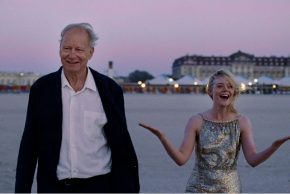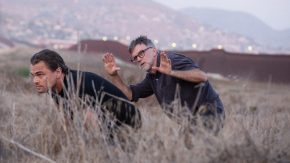Aficionados of the king of instruments can listen to organist Wayne Marshall at Müpa Budapest on 8 February. This instrument, with its extremely wide range of registers, never fails to impress, and it’s no wonder that not only classical musicians but even bands such as Led Zeppelin and Pink Floyd have included the organ in their songs. I bring this up only because Wayne Marshall doesn’t have to go far to find a variety of genres; in his student days, for example, he was involved in jazz, Broadway and church music all at the same time.
Before I started writing, I decided to take a little time to get to know Wayne Marshall. I came across a recording of him playing Gershwin, Rhapsody in Blue. First he just conducts the orchestra in a firm manner, then he sits down at the piano and starts playing. I recoiled because from the first notes I had the feeling that it had crawled under my skin. Yes, it was definitely there.I only bring all this up because Wayne Marshall doesn’t have to go far for a variety of genres, for example, in his student days he was involved in jazz, Broadway and church music all at the same time. You, dear reader, might have a go at it, I wonder if we have the same sensation when we hear the music.
The Barbadian-born musician, raised in Britain, sixty-one years old this year, is truly versatile, having played piano, organ and also works as a conductor. He is Principal Conductor of the WDR Funkhausorchester in Cologne and Principal Guest Conductor of the Orchestra Sinfonica di Milano Giuseppe Verdi. He is not only unique in his knowledge of lighter genres and classical music, but also in his mastery of improvisation. On his Facebook page, he often surprises his followers with a brilliant improvisation on a famous composer’s birthday, for instance. Sometimes he delights his followers with astonishing performances, such as what he calls Beethoven’s Metallica:
He has a special relationship with Gershwin’s music, and is a fierce advocate, for example, of not treating Porgy and Bess as a musical, but as an opera, and has conducted it on several occasions in opera houses around the world.
Well, let’s see what he brings to Müpa Budapest and what we can hear from him. He will be playing the organ and will dazzle the audience with the aforementioned improvisations right at the beginning, and will also close the evening with an improvisation on Beethoven themes in a number of variations. Wayne Marshall will be on hand to help us listen to a particularly beautiful piece by French organist Charles-Marie Widor. And Andrew Ager’s Toccata and Fugue and George C. Baker’s Two Evocations will take us into a musical world we may not know so well. So this evening is a great opportunity to get to know something different.
The artist is by no means far removed from passing on new knowledge, having been awarded an honorary doctorate by Bournemouth University in 2004. His playing is extremely dynamic, and he visibly lives every note he plays. His first album was released in 1988, and since then some twenty-four discs have preserved his playing. A world-renowned artist, he is also due to make his debut this season, including conducting Leonard Bernstein’s opera Candide in Lyon. As an organist, he has an extremely wide repertoire. This recording of Liszt playing Bach’s Prelude and Fugue is an impressive taste of his playing:
Undeterred by the pandemic, he was happy to take advantage of technology to give online, streamed concerts, and of course he missed the audiences in the concert halls.
In a recent conversation with organist Dóra Pétery, she said that the organ is a repository of infinite possibilities. On 8 February at Müpa Budapest, Wayne Marshall will certainly confirm this, and his performance will make us wonder why he chose the king of instruments in the first place. He will be the answer.
Article: Anna Rácz
Translation: Nóra Fehér

























Comments